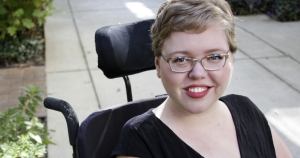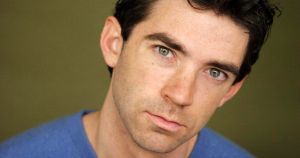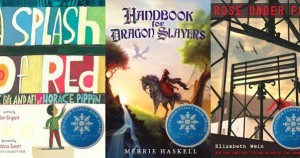
Review: Gathering Blue by Lois Lowry
The story suggests that Kira’s talents as a threader make up for her disability, justifying her continued survival–with the disturbing implication that without it, she would be worthless.

The story suggests that Kira’s talents as a threader make up for her disability, justifying her continued survival–with the disturbing implication that without it, she would be worthless.

I’ve talked a lot about the ways my disability has affected my body image, my sexuality, my confidence, and my social interactions, and all of those things are important to consider when writing a disabled character. Today, however, I want to focus on the ways my disability affects the logistics of my life.

ADD isn’t an end of the world big deal. It’s really, really not. But it is a deal, it’s a thing. It’s a disability. It puts you on a different default setting.

A princess with a clubfoot. Who can resist? We can’t, and apparently the Schneider Family Book Award jury couldn’t, either. Merrie Haskell’s 2014 win of the award was just one of the reasons we wanted to discuss her MG fantasy novel Handbook for Dragon Slayers with her.

We’ve been wanting to shake hands with the good folks of the Schneider Family Book Award–an ALA award which highlights depictions of disability in children’s literature–for a while, and July 2014 marked the perfect time: while we celebrated our first anniversary, the Schneider celebrated its tenth!

A one-armed astronaut superhero is the lead in Dangerous, the unusual new novel by NYT bestselling and Newbery Honor-winning author Shannon Hale, who sat down with us for a great interview.

Did you know in the US it’s illegal to drive within six months after having a seizure? Even under supervision, even just around the block, I wasn’t trusted behind a wheel.

According to pop culture, mentally ill people are magically more creative, filled with a manic drive to create art that pushes them to the brink until they finally explode.

An exceptionalist narrative might, at first glance, seem like a positive or even empowering one. But, as it always goes when it comes to depictions of disability, the situation is much more complicated than that-

Predictably, many of the tropes relating to D/deaf and hard of hearing characters deal with communication methods and degree of hearing loss. Most, if not all, of these tropes have to do with people’s assumptions and wishful thinking about hearing loss.